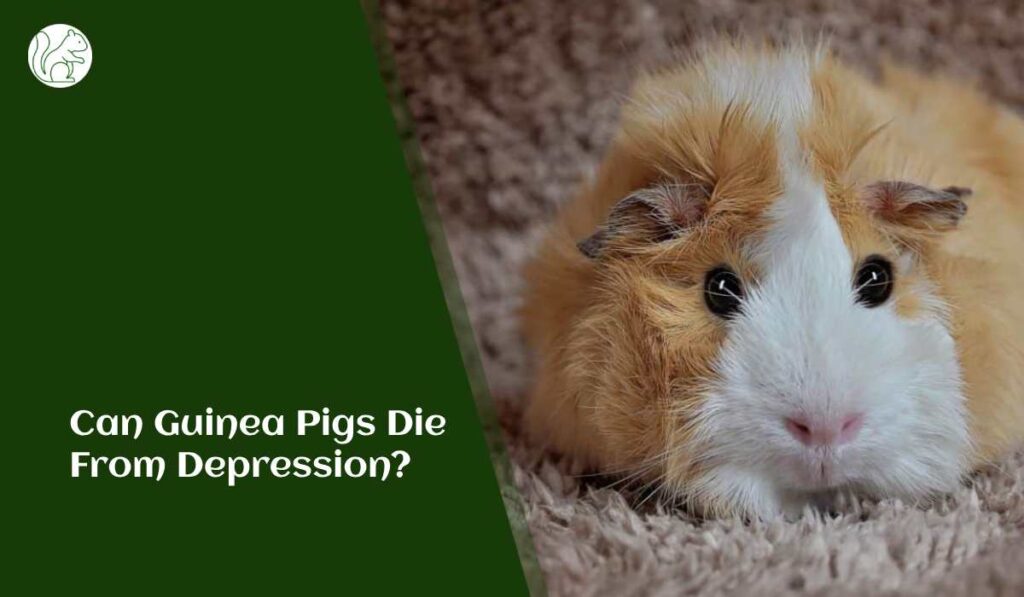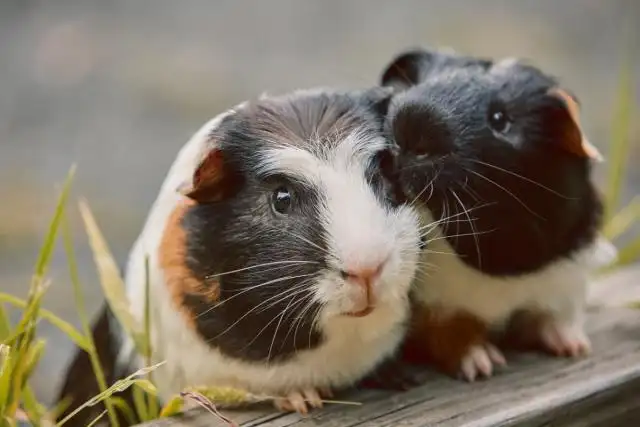Guinea pigs, also known as cavies, are small and sociable pets that bring joy to many households. These adorable creatures thrive in an environment where they receive proper care, attention, and social interaction. While guinea pigs are generally hardy animals, their mental well-being can have a significant impact on their overall health. In this article, we will explore the topic of guinea pigs and depression, shedding light on whether or not these animals can die from this condition.

Understanding Guinea Pig Behavior
Before delving into the topic, it is important to have a basic understanding of guinea pig behavior. Guinea pigs are highly social animals that naturally live in groups in the wild. They establish strong bonds with their fellow cavies and rely on social interaction for their well-being. When kept as pets, they require companionship, mental stimulation, and a comfortable environment to thrive.
Signs of Depression in Guinea Pigs
While guinea pigs do not experience depression in the same way humans do, they can exhibit signs of emotional distress or unhappiness. It is crucial for guinea pig owners to be aware of these signs in order to provide appropriate care and support. Some common signs of depression in guinea pigs include:
- Loss of appetite: A depressed guinea pig may show a decrease in appetite and lack interest in their favorite foods.
- Weight loss: If a guinea pig is not eating enough due to depression, it can lead to weight loss and overall weakness.
- Lethargy: Depressed guinea pigs often appear lethargic, spending more time in hiding or sleeping.
- Social withdrawal: Guinea pigs that are feeling down may isolate themselves from their cage mates and avoid social interaction.
- Unusual behavior: Depressed guinea pigs may exhibit behaviors such as teeth chattering, excessive grooming, or repetitive movements.
Health Consequences of Depression in Guinea Pigs
While depression itself may not directly cause death in guinea pigs, the consequences of prolonged sadness and lack of care can have a negative impact on their health. Depression

can weaken their immune system, making them more susceptible to illnesses and diseases. In addition, a depressed guinea pig may neglect self-grooming, leading to issues like fur loss, skin infections, or matted fur.
Moreover, the loss of appetite and weight loss associated with depression can quickly lead to malnutrition and a weakened body condition. If left untreated, these physical ailments can result in a significant decline in the guinea pig’s overall health and ultimately shorten their lifespan.
The Importance of Mental Stimulation and Social Interaction
To prevent depression in guinea pigs and promote their well-being, it is crucial to provide them with mental stimulation and social interaction. Here are some tips to keep your guinea pig happy and content:
- Companionship: Guinea pigs are social animals, and they thrive when they have a cavy friend to interact with. Consider getting a same-sex companion for your guinea pig to alleviate loneliness.
- Environmental Enrichment: Create an enriching environment by providing toys, tunnels, and hiding spots for your guinea pig to explore. This will keep them mentally stimulated and prevent boredom.
- Regular Handling: Guinea pigs enjoy gentle handling and physical interaction with their owners. Regularly spend time with your guinea pig, petting and cuddling them to strengthen the bond between you.
- Proper Nutrition: Ensure that your guinea pig has a well-balanced diet consisting of fresh hay, high-quality pellets, and fresh vegetables. Good nutrition plays a vital role in their overall health and happiness.
- Safe and Comfortable Habitat: Provide a spacious and comfortable living space for your guinea pig, complete with a cozy bedding area, hiding spots, and a clean environment.
Conclusion
While guinea pigs may not directly die from depression, their mental well-being greatly influences their overall health and longevity. Neglecting their social and emotional needs can lead to physical ailments and a decline in their quality of life. As responsible pet owners, it is our duty to ensure that our guinea pigs receive the care, attention, and mental stimulation they require to thrive. By providing a loving environment and meeting their social needs, we can contribute to their happiness and well-being.
Remember, if you notice any signs of depression in your guinea pig, it is essential to consult a veterinarian who specializes in small animals. They can provide a proper diagnosis and recommend appropriate treatments or interventions to help your furry friend recover and regain their zest for life.
